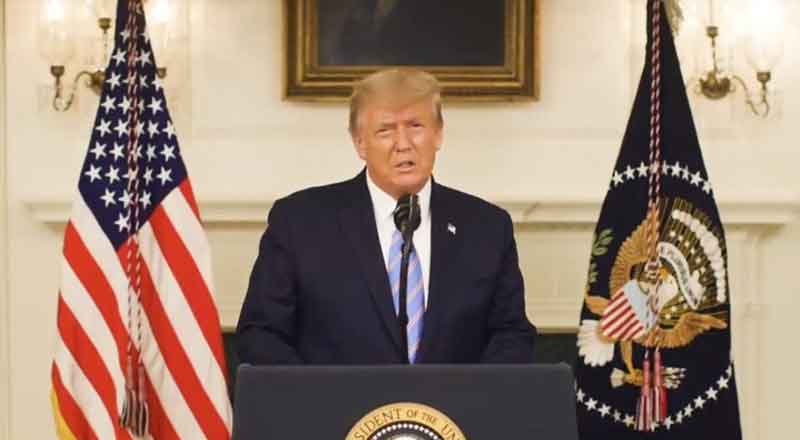China Urges Restraint, Demands Swift Investigation
In the wake of the brutal Pahalgam terror attack that claimed 26 lives, China has called for a “swift and fair investigation” into the incident. At the same time, Beijing has reiterated its strong support for Pakistan in safeguarding its sovereignty and security interests.
Chinese Foreign Minister Wang Yi conveyed Beijing’s stance during a telephonic conversation with Pakistan’s Deputy Prime Minister and Foreign Minister Ishaq Dar. According to state-run Xinhua news agency, Wang emphasized that China is “closely monitoring” the situation, stressing that “conflict serves neither India’s nor Pakistan’s fundamental interests, nor regional peace.”
While condemning the attack, China’s dual messaging — supporting an impartial probe but standing firmly with Pakistan — has raised eyebrows in diplomatic circles, particularly in New Delhi.
The Pahalgam Horror: A Brutal Attack on Civilians
The Pahalgam attack occurred on April 22, when armed terrorists ambushed a group of tourists in Kashmir’s picturesque Baisaran Valley, killing 26 individuals, including 25 tourists and one local Kashmiri. More than 20 others were seriously injured.
In response, the Indian government launched massive counter-terror operations, suspended diplomatic and treaty obligations with Pakistan, and briefed foreign envoys about its preliminary findings. Notably, this time China was present at the diplomatic briefing — unlike after the 2019 Pulwama attack — suggesting a marginal thaw in Sino-Indian diplomatic channels. However, Beijing’s continued tilt towards Islamabad remains a strategic concern for India.
China’s Calculated Support for Pakistan: Analyzing the Move
China’s support for Pakistan following the Pahalgam tragedy fits into a long-standing pattern. Beijing and Islamabad share what they often describe as an “ironclad friendship,” underpinned by major strategic, economic, and military cooperation — notably the China-Pakistan Economic Corridor (CPEC).
By backing Pakistan’s security concerns and calling for an “impartial investigation,” China seeks to maintain its influence in South Asia while avoiding direct confrontation with India.
Although China condemned the attack in strong terms — calling it “heinous” and “unacceptable” — its reaffirmation of support for Pakistan indicates that, for Beijing, maintaining ties with Islamabad outweighs aligning unequivocally with global outrage over terrorism.
The US Stance: Strong Support for India, But Measured Words on Pakistan
Meanwhile, the United States extended full support to India, offering condolences and reiterating its commitment to fight terrorism. However, Washington has stopped short of directly blaming Pakistan for the Pahalgam attack.
In a statement to Reuters, a US State Department spokesperson said, “We have been in touch with the governments of India and Pakistan at multiple levels. The United States encourages all parties to work together toward a responsible resolution.”
This careful positioning reflects Washington’s attempt to balance its strategic partnership with India against its security concerns involving Pakistan, especially given Pakistan’s role in the broader regional counter-terrorism framework, including Afghanistan.
Pakistan’s Response: Promises of Responsible Conduct
During the call with Wang Yi, Pakistan’s Ishaq Dar reiterated Islamabad’s “longstanding commitment” to fighting terrorism. He pledged that Pakistan would manage the situation “responsibly” and maintain ongoing communication with China and other international stakeholders.
However, India remains unconvinced, pointing to a pattern of proxy terrorism and ceasefire violations. Since the Pahalgam attack, firing along the Line of Control (LoC) has escalated, with India accusing Pakistan of unprovoked aggression and responding with effective retaliatory fire.
A Fragile Balancing Act
The international reactions to the Pahalgam attack reveal a complex balancing act. While condemnation of terrorism has been nearly universal, geopolitical realities shape the responses of major powers.
China’s “supportive neutrality” — condemning terror but backing Pakistan — illustrates its deeper strategic priorities in the region. The United States’ cautious diplomacy highlights its desire to support India while keeping dialogue channels with Pakistan open.
For India, the challenge will be to maintain global attention on cross-border terrorism while managing diplomatic engagements with both Beijing and Washington.
Ultimately, in the face of barbaric terror, solidarity against extremism must trump narrow geopolitical games. Nations that truly value peace must call out terror unequivocally — and stand firmly with its victims, not with its perpetrators.
(With inputs from agencies)





